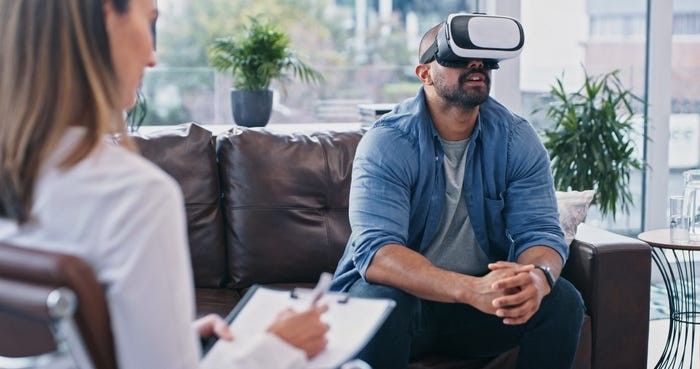
A groundbreaking study reveals that virtual reality (VR) biofeedback therapy effectively reduces symptoms of depression and anxiety, offering new hope for mental health treatment.
Research published in the Journal of Affective Disorders demonstrates that combining VR technology with traditional biofeedback methods creates an engaging and powerful therapeutic tool. The study involved 118 participants divided into three groups, comparing VR-based and conventional biofeedback approaches.
During VR sessions, participants wore headsets that transported them to calming natural environments like forests and oceans while practicing breathing exercises and relaxation techniques. Sensors monitored their physiological responses, including heart rate and oxygen levels.
The results were remarkable - participants receiving VR biofeedback showed a 70% reduction in depression scores and over 60% decrease in anxiety measurements. These improvements matched the effectiveness of traditional biofeedback therapy, while participants reported finding the experience more engaging.
"The immersive nature of virtual reality helps maintain patient engagement during therapy sessions," explains lead researcher Yaehee Cho. "Even participants with minimal symptoms experienced measurable benefits from the VR intervention."
The study suggests VR biofeedback could become a valuable treatment option, particularly for individuals who struggle with conventional therapy approaches. The technology allows patients to practice self-regulation techniques in a controlled, immersive environment.
While the initial findings are promising, researchers note that longer-term studies are needed to fully understand the lasting benefits of VR-assisted therapy. However, this innovative combination of virtual reality and biofeedback represents an exciting advancement in mental health treatment options.
The research team believes VR biofeedback could make therapy more accessible and appealing to those seeking help for depression and anxiety, potentially improving treatment outcomes through increased patient engagement.